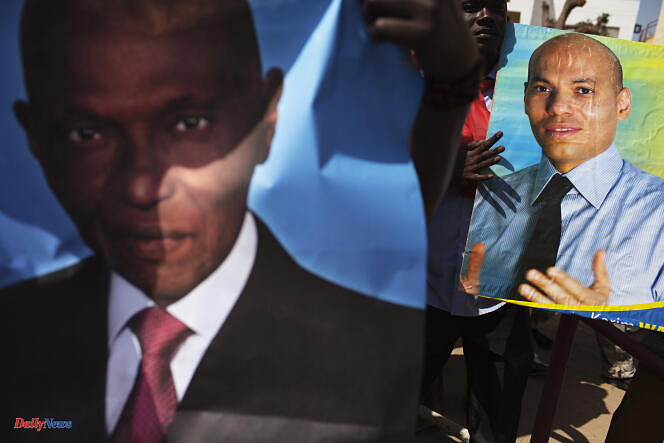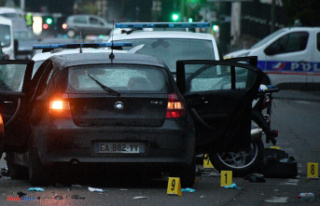This is a final setback for Karim Wade, unsuccessful candidate in the presidential election in Senegal. The appeals filed before the Supreme Court in order to suspend the decrees setting the date of the poll and the duration of the campaign were declared "inadmissible" on Friday March 15 by the judge of the high court. This decision, which was his last chance to compete for the supreme office, definitively puts an end to the hopes of the son of former president Abdoulaye Wade, nominated candidate by the Senegalese Democratic Party (PDS).
At the end of the hearing, around thirty PDS activists expressed their disappointment. “I am angry with the current president, Macky Sall, because he failed Abdoulaye and Karim Wade. Without Karim, there will be no election! », shouts an activist who hoped for a cancellation of the vote and a restart of the electoral process. “We used the law to fight democratically and peacefully,” underlines Lat Dior Diop, member of the PDS.
On Monday, several appeals were filed by Karim Wade and other candidates against the presidential decree summoning voters to the polls on March 24, arguing that the time left for the electoral campaign was twelve days and not twenty-one, as provided for in the Constitution. But the Supreme Court declared itself incompetent in the matter, considering that the Constitutional Court, which validated this date, had “full jurisdiction in electoral matters”.
Since the publication by the Constitutional Council in January of the list of presidential candidates – from which he is excluded – Karim Wade has sought by all means to contest this decision from Qatar, where he has been exiled since 2016. His party initially claimed that some of the judges had been corrupted by Amadou Ba, who was then prime minister and the candidate of Macky Sall's coalition. These accusations led to the creation of a parliamentary commission of inquiry and pushed the president to announce on February 3 the postponement of the vote, plunging the country into an unprecedented political crisis.
The question of vote carryover
These developments had nevertheless raised hopes within the PDS, a national dialogue set up urgently having notably recommended a revision of the list of candidates. Alas, the Constitutional Council, in a new decision, demanded that only the 19 people initially chosen could present themselves and ordered the head of state to organize the vote before April 2 – the date of March 24 was then retained .
Nine days before the election, the new attempt to postpone it has therefore failed and nothing seems to be able to prevent the vote from taking place. But the crisis remains acute. On Wednesday, the PDS demanded the “immediate dissolution of the Constitutional Council” and announced that it wanted to take legal action “in order to shed light on these facts” of corruption. “What has always interested us is that this election can take place in a context of stability so that the Senegalese can choose their President of the Republic,” declared Mamadou Diop Decroix, unsuccessful candidate in the presidential election and ally of the PDS.
The question now is to know which of the 19 candidates the votes of PDS supporters will refer to, while the party is one of the heavyweights of the opposition in Senegal, with 27 deputies in the National Assembly.
The political game was recomposed again on Thursday with the release from prison of Ousmane Sonko, the main opponent, and his right-hand man, Bassirou Diomaye Faye, whom he nominated as a presidential candidate. Seen by the ruling camp as formidable rivals, the two men were to hold their first press conference late Friday afternoon, before beginning an express electoral campaign.












